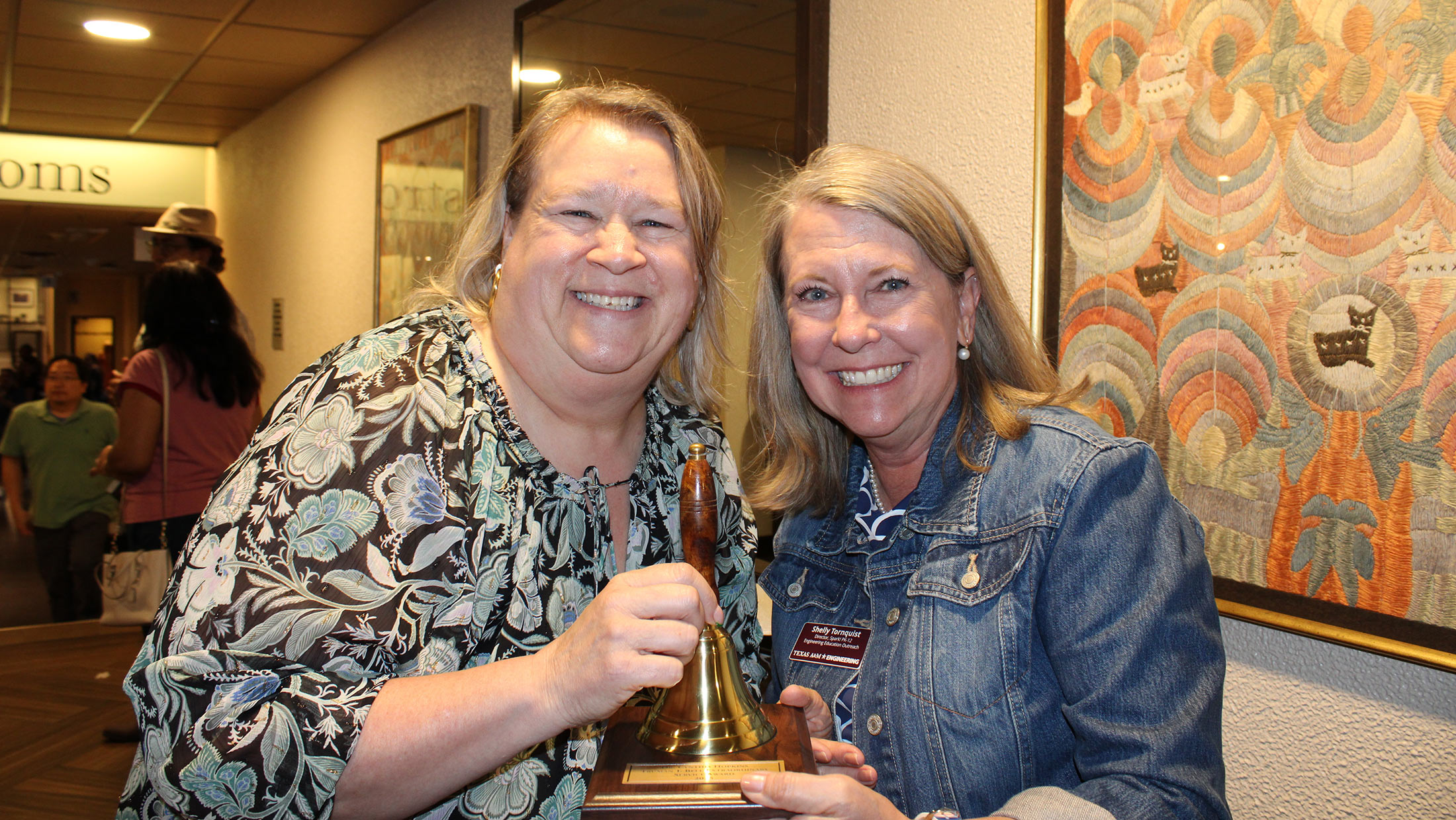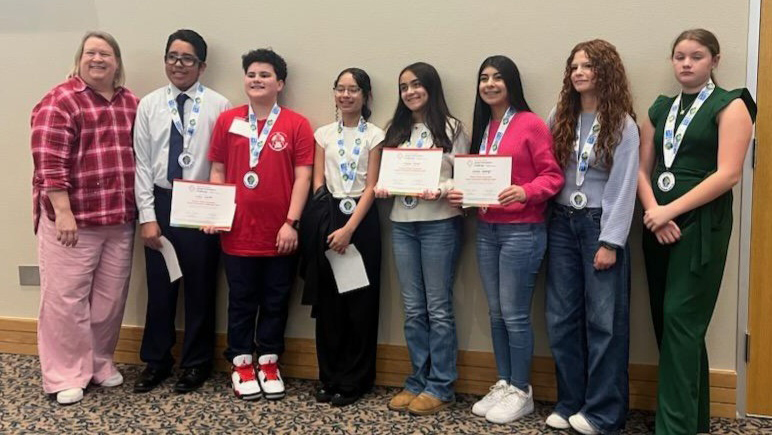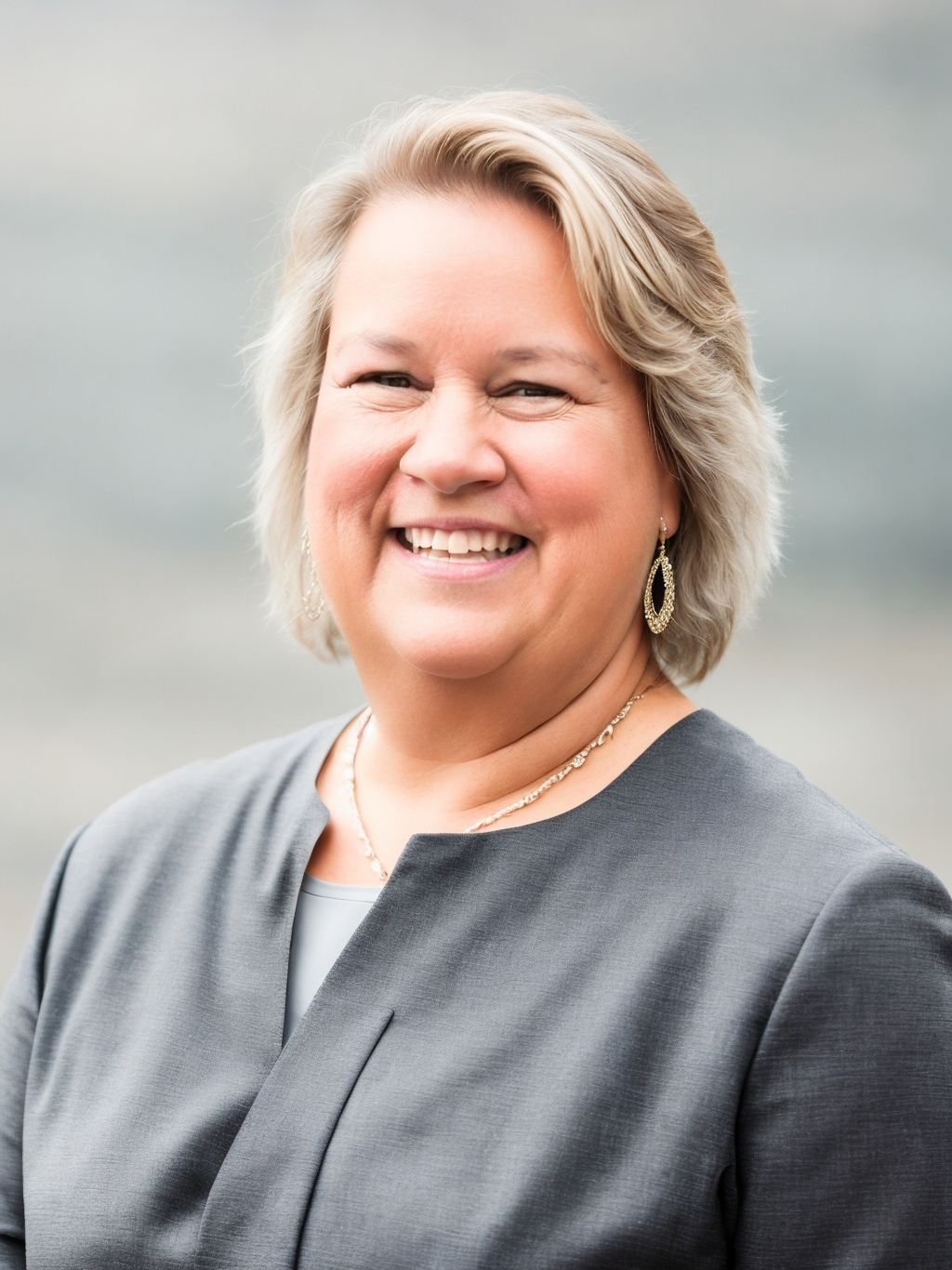
Dr. Cynthia Hopkins, a 7th-grade science and 8th-grade engineering teacher at Kaffie Middle School in Corpus Christi, Texas, has been honored as the 2025 recipient of the Truman T. Bell Extraordinary Service Award by the Texas Science and Engineering Fair (TXSEF). This prestigious award honors Texas educators, sponsors and advocates who exceed their expected roles to support students, colleagues and communities through their dedication to the science fair.
Hopkins was presented with the award during the TXSEF Awards Ceremony at Texas A&M University on March 29, 2025. As part of this recognition, she received a $1,000 cash prize and an invitation to attend the Conference for the Advancement of Science Teaching (CAST).
"When I first learned I had been selected for the Truman Bell Award, I was honestly overwhelmed...I immediately thought of the students, colleagues and mentors who’ve shaped my journey — this award belongs to all of them, too," the 18-year classroom veteran said. "To be recognized among so many incredible science educators across Texas was incredibly humbling...it affirms the work I’ve poured into creating engaging, inclusive, and meaningful science experiences for students."
Hopkins is the fourth recipient of the award since its establishment in 2022. Created in memory of Truman T. Bell, the award honors his enduring dedication to science, technology, engineering and math (STEM) education and his invaluable contributions to TXSEF. Over his 45-year career. Bell made a lasting impact across university student services, industry human resources, corporate recruiting, public affairs and foundation administration. His leadership played a pivotal role in shaping STEM education programs and advancing initiatives aimed at expanding career opportunities for all.
The Truman Bell Award is not just a personal honor — it’s a reminder that our efforts matter and that we’re shaping futures every single day.
"The Truman Bell Award is not just a personal honor — it’s a reminder that our efforts matter and that we’re shaping futures every single day," she said.
As a child, Hopkins was endlessly curious, always asking “why” and “how.” Fortunately, she had teachers who encouraged her to explore, experiment and think critically — shaping how she perceived the world. That same spirit of curiosity would later inspire her journey as an educator.
“One of the earliest sparks came in middle school, where my science teacher, George Allen, made learning feel like an adventure,” she said. “He didn’t just teach facts — he invited us to ask big questions, explore possibilities and see ourselves as scientists. That sense of curiosity and empowerment never left me.”
Although Hopkins' love for science took root early, teaching wasn’t always her plan. Wile living in Sicily due to her husband’s Navy career, she began tutoring as a way to stay busy. But what started as a side job quickly turned into something more. She discovered deep fulfillment in helping students build confidence and uncover their strengths.
“When my husband retired, I saw my chance. I earned my teaching certification and turned my passion into a career,” she said. “That was 18 years ago, and I can honestly say I’ve loved every day I’ve spent with my students. Each class, each student, brings something new—and it never stops being meaningful.”
Transforming Students Through Science Fairs
Hopkins has created opportunities to turn curiosity into action by inspiring students to explore their interests. One way she does this is by encouraging students to submit science projects to TXSEF.

Passion is contagious—and when students see that discovery can be joyful, messy and meaningful, they begin to chase that excitement for themselves.
"Watching students develop their ideas, overcome obstacles and grow into confident researchers is incredibly fulfilling," she said. "It’s not just about winning awards—it’s about helping students realize they belong in science. Seeing their pride when they present their work or hearing them say, ‘I didn’t think I could do this, but I did,’ is a reminder of why this work matters so much."
Passion is contagious—and when students see that discovery can be joyful, messy and meaningful, they begin to chase that excitement for themselves."
Hopkins loves to see how the science fair transforms students — shifting how they see themselves, how they approach learning and even how it shapes their future careers.
One of Hopkins' former students began competing in the state science fair in seventh grade and, after hard work and dedication, advanced to the International Science and Engineering Fair from ninth to twelth grade. By eleventh grade, the student's research was published in a peer-reviewed journal, leading to a full scholarship at Rice University, where he began medical research as a freshman.
"What started as a middle school science fair project became the foundation for a future in science and medicine," Hopkins said. "Stories like his show the power of science fairs to open doors, build confidence and ignite lifelong passions."
The Future of STEM Education
As she looks forward to the future, Hopkins hopes that STEM education is made more inclusive, hands-on and connected to the real world.

"I want every student — regardless of background, resources or prior experience — to feel empowered to ask questions, explore solutions and see themselves as capable contributors to science, technology, engineering and math," Hopkins said.
She believes teachers must begin by breaking down the walls between the classroom and the community by "partnering with universities, industry professionals and local organizations to give students authentic, real-world research experiences that are both meaningful and impactful."
"You don’t need a fancy lab or expensive equipment — what matters most is creating a culture of inquiry, trust and high expectations," Hopkins said. "STEM education has the power to change lives. We just need to keep opening the doors and lighting the way."
To learn how to connect your STEM classroom with Texas A&M and provide students with meaningful, real-world research experiences, explore the SPARK! PK-12 Engineering Education Outreach Program.